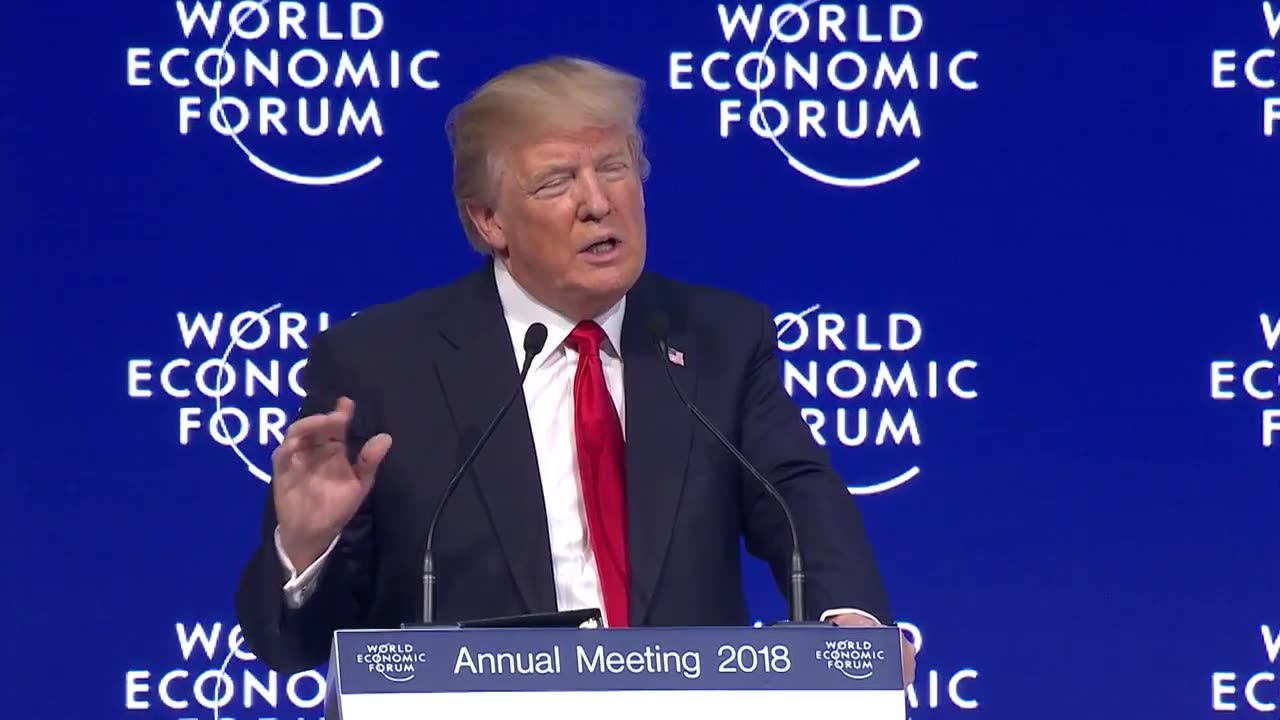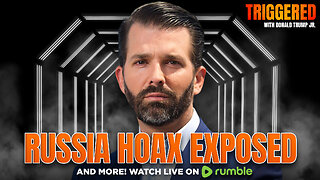Premium Only Content

Supporting Free Trade: Unveiling Donald Trump's Perspective 😶🌫️
Supporting Free Trade: Unveiling Donald Trump's Perspective
Donald_Trump___We_support_free_trade
.
.Title: Examining Donald Trump's Economic Policy: Free Trade, Trade Agreements, and Global Commerce
Introduction:
Donald Trump's presidency (2017-2021) was marked by a distinctive approach to economic policy, particularly in the realm of free trade and trade agreements. This article explores Trump's stance on free trade, his approach to trade agreements, and the impact of his policies on global commerce.
1. Donald Trump's View on Free Trade:
Donald Trump's economic philosophy deviated from traditional Republican principles of free trade. He expressed skepticism towards the benefits of open markets, arguing that they had led to job losses and trade imbalances, particularly with countries like China.
2. Renegotiation of Trade Agreements:
During his presidency, Trump pursued a policy of renegotiating existing trade agreements to secure better terms for the United States. Notably, he sought to revamp the North American Free Trade Agreement (NAFTA), resulting in the United States-Mexico-Canada Agreement (USMCA). The new agreement aimed to prioritize American industries and workers.
3. Trade War with China:
One of the most significant trade-related actions of Trump's presidency was his approach to China. He initiated a trade war by imposing tariffs on Chinese imports, citing concerns about intellectual property theft, trade deficits, and unfair trade practices. The tensions resulted in a series of retaliatory measures and negotiations between the two economic giants.
4. Bilateral vs. Multilateral Trade Deals:
Trump favored bilateral trade deals over multilateral agreements, asserting that individual agreements allowed the United States to negotiate from a position of strength. This approach contrasted with previous administrations' emphasis on multilateral agreements like the Trans-Pacific Partnership (TPP).
5. Impact on Global Commerce:
Trump's trade policies elicited mixed reactions from economists and experts. Advocates argued that his tough stance on trade forced other nations to address long-standing issues, while critics raised concerns about potential negative effects on global supply chains, international cooperation, and economic stability.
6. Trade Deficits and Job Creation:
Trump aimed to reduce trade deficits and boost domestic manufacturing by imposing tariffs on imports. While his policies did lead to some reshoring of jobs and increased investment in certain industries, there were debates about whether these actions had a lasting impact on overall job creation.
7. Future Implications:
The long-term effects of Trump's trade policies on the global economic landscape remain a subject of ongoing analysis. It is yet to be seen how subsequent administrations and international partners will build upon or reverse the trade initiatives he set in motion.
Conclusion:
Donald Trump's economic policies, particularly his approach to free trade, trade agreements, and global commerce, had a profound impact on the world stage. While his administration sought to prioritize American interests through renegotiated agreements and tariffs, the broader implications of these actions continue to shape international economic dynamics and discussions about the merits of protectionism versus open markets.
.
-
 21:53
21:53
Glenn Greenwald
6 hours agoMichael Tracey on the Street: What Do People Think of the Epstein Case?
107K53 -
 2:26:28
2:26:28
megimu32
3 hours agoOTS: Board Games Gone Wild! The Loud, Weird & Chaotic Games That Raised Us
13.5K6 -
 LIVE
LIVE
DamnDanieI
3 hours agoKill First, Loot Later – OTG Live
308 watching -
 56:41
56:41
Donald Trump Jr.
8 hours agoLies, Leaks, and Lawfare: Censorship Corruption Exposed | TRIGGERED Ep.263
140K119 -
 1:19:46
1:19:46
Precision Rifle Network
5 hours agoS4E25 Guns & Grub - Rex Is Back, I shot the 6.5PRC finally...
11.6K1 -
 LIVE
LIVE
rhywyn
2 hours agoうつ
23 watching -
 LIVE
LIVE
RyuMuramasa✧
4 hours agoNEW Everdark Sovereign | Elden Ring Nightreign | LIVE Playthrough
32 watching -
 1:17:04
1:17:04
Nikko Ortiz
12 hours agoLive - News, Politics, Podcast And Naaah Im Playin We Chillen
5.58K -
 1:26:13
1:26:13
Mally_Mouse
6 hours agoLet's Hang!! -- P.O. Box & Chill!
18.7K -
 1:02:37
1:02:37
BonginoReport
7 hours agoKamala Teases Book About Dumpster Fire Campaign - Nightly Scroll w/ Hayley Caronia (Ep.102)
72.6K57